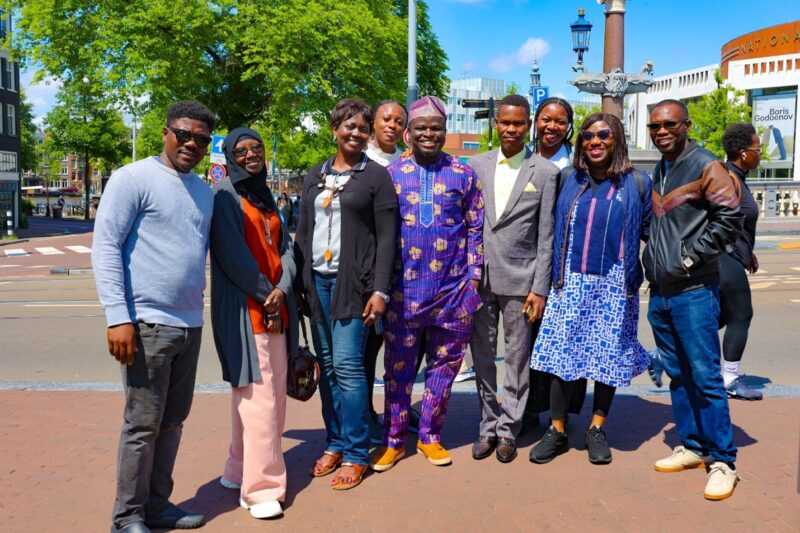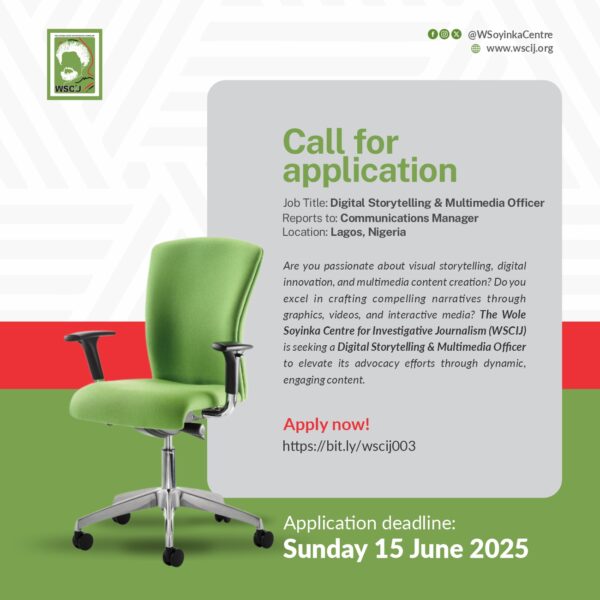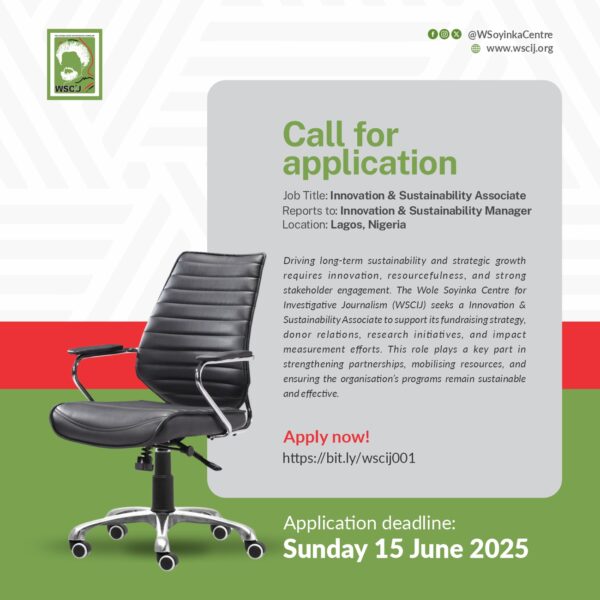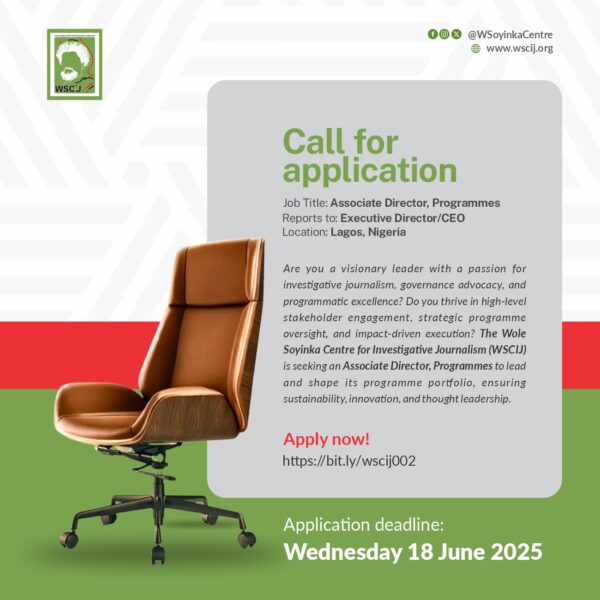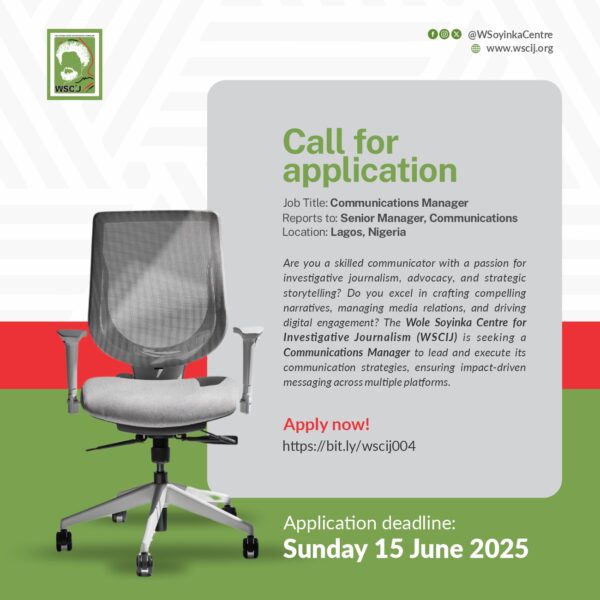Thirteen journalists have been trained to report the connection between gender and COVID-19 under the COVID-19 Reality Check project implemented by the Wole Soyinka Centre for Investigative Journalism (WSCIJ). The two-day virtual training held Tuesday 6 & Wednesday 7 October 2020.
WSCIJ Executive Director/CEO, Motunrayo Alaka, said the training is the first under the COVID-19 Reality Check project, and it was held to help reporters do great stories and plug the gaps observed in the reports done by reporters previously engaged on the project, while paying attention to investigating women and girls issues in connection to COVID-19.
Alaka disclosed that the reporters are the fourth set of journalists to be commissioned to cover the realities on ground in relation to the coronavirus pandemic, and that 95 stories have been produced since April when the project commenced.
Sharing perspectives on investigating human interest stories on COVID-19 and gender, Abigail Ogwezzy-Ndisika, Professor of mass communication at the University of Lagos, noted that the reporters’ investigation should bring the gender dimension of COVID-19 to the fore, contextualise the issues and draw the attention of political office holders and other duty bearers to the vulnerabilities women and girls suffer with the aim of preventing and mitigating them.
She reeled out several gender issues heightened by COVID-19 that the reporters can investigate. These include the challenges of female frontline workers, gender-based violence against girls and women, poor access to maternal health during the pandemic, coping mechanisms of women widowed by COVID-19 and women in the informal sector, including agriculture.
She explained that investigating the issues involve a heavy use of public records and data, with a focus on social justice, social exclusion and accountability, using a gender lens.
Bimbo Oloyede, a veteran broadcaster, also a resource person at the training, talked the reporters through getting the best out of interviews. She stated that an “interview should be prepared, scripted, logical, topical controlled, imaginable, professional, explicit and credible.”
She said an interview must yield the right information, which according to her depends on asking the right question from the right source(s) and knowing the subject matter as well as the personality of the person(s) to be interviewed.
On his part, Rotimi Sankore, Chief Editorial Coordinator, Special Projects at AiM Media Group, observed that availability of data for the different story ideas pitched by the reporters is a mixed bag – there are datasets for some stories while others do not have any dataset.
He asserted that having a dataset to work with is always the best since it provides a standardise point to draw inferences for the story, adding that the lack of data in some cases should, however, form part of the story to call the attention of the authorities to it.
During his session on developing and engaging human and non-human sources for reports, Lekan Otufodunrin, Executive Director, Media Career Development Network, emphasised the need for the reporters to develop a list of relevant sources needed, get the right documents for direction and use reliable sources for their investigation.
The reporters will be mentored for one-month under a group of seasoned media practitioners and academics towards successful delivery on their pitched investigative and gender story ideas.
The COVID-19 Reality Check project, an initiative of the WSCIJ, examines government interventions and promises in relation to the realities on the ground in terms of social welfare, water and sanitation, economics, security, food availability and accessibility, education, electric power supply, and more.


